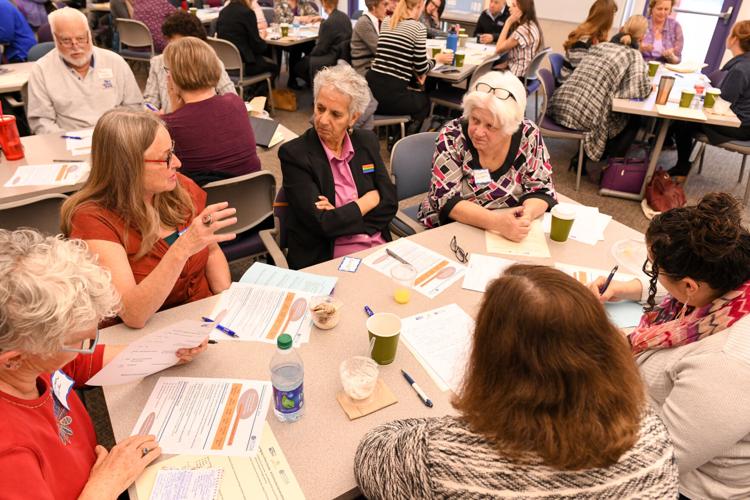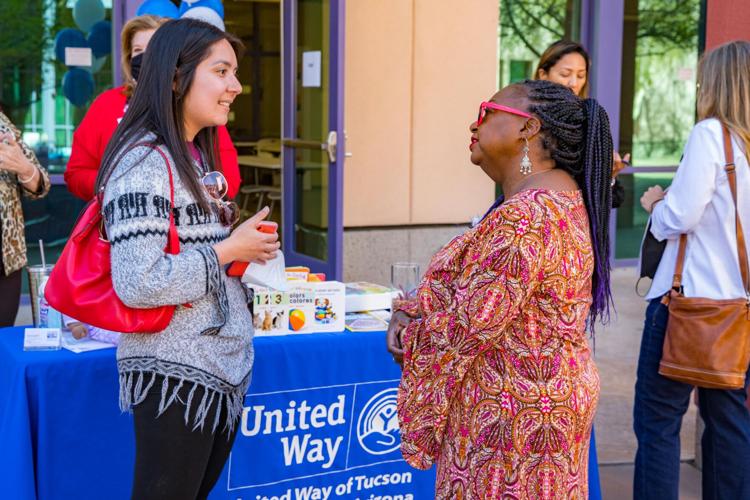Older adults are projected to outnumber children under age 18 for the first time in U.S. history by 2034, the Census Bureau projects.
“If aging isn’t your problem, it will be,” says Elizabeth Cozzi, senior director of the Elder Alliance in Tucson, which is poised to help.
Some of the main issues older adults face are low incomes, food insecurity, the need for affordable housing and transportation, and lack of family support, says Judy Clinco, the local alliance’s co-founder and co-chair.
Those issues have been exacerbated by the country’s growing older population. People are living longer, which means it’s necessary to have programs dedicated to improving the quality of life for older people, she says.
The Elder Alliance is a longstanding local program that serves as a hub for groups that assist Tucson’s older adults. With pandemic restrictions easing, it’s trying to get the word out about its services.
A collaboration of nonprofits, businesses, government agencies, community partners and organizations that work with older adults, the alliance was formed in 2010 and is staffed by the United Way of Tucson and Southern Arizona and the Pima Council on Aging.
Cozzi said bringing the groups together under one umbrella has been a good way to harness energy, work collectively and address issues on a large-scale level. The alliance has a membership of more than 130 individuals with affiliations in more than 70 organizations and active community volunteers.
Nationwide, 20% of all people are 60 years of age or older, and as of 2017, at least, the percentage was the same in Tucson, according to the American Community Survey of the Census Bureau.
Tucson promotes an age-friendly community, and the Elder Alliance provides services that promote active lives, Cozzi said.
“The vision is that seniors in our community can thrive and enjoy a high quality of life and kind of play an active role in shaping the communities for any age in Pima County,” she said.
Older adults have a desire to “age in place” and remain in their own communities and homes and live as independently as possible, as opposed to entering assisted living or other types of institutional care, Cozzi said.
Targeting issues in older communities was key to taking action, Cozzi said. When it started out, the alliance hired neighborhood connectors to go into distinct geographic areas of Pima County to learn what the needs and concerns of older adult residents are. Once those target issues were identified, action teams were created.
Lucy Read, 79, is a retired nurse who worked with elders most of her nursing career and now works as community connector for the alliance.
“I have a passion for older adults and making their lives as good as possible, and that’s including myself,” Read said.
The action teams are split up into several groups, including age-friendly/livable community; behavioral health and aging council; direct care workforce; end-of-life care partnership; housing; mature workforce; social engagement and more. The alliance uses the teams to collect information from participants and take appropriate actions.
Some of the main issues older adults are facing are affordable housing, low incomes, transportation, food insecurity and not having family support, according to Judy Clinco, the alliance’s co-founder and co-chair.
“We’re bringing forward the concerns and issues of older adults in the Tucson community,” Clinco said. “We’re creating a voice.”
Without a voice, issues become invisible, Clinco said.
During 2020, Elder Alliance created a social connection network as an effort to help older adults who were isolated to stay connected during the pandemic, either online or in person. Through friendly calls or safe socially distance activities, the Alliance provided different activities such as gatherings in parks, online tours of national parks and museums, and gardening and cooking classes.
While the alliance’s meetings were online for the past two years, Tucson’s United Way branch recently hosted an open house to welcome the public back to its campus and kick off the return of in-person meetings for Elder Alliance. For the first time since mid-2020, staffers were on hand to provide resources and many of the participating groups were able to come by and visit.
“Through the collective and the work that we’re doing, we build the power of the voice and be able to activate meaningful change that will positively impact the lives of older adults in our community,” Clinco said.
The Elder Alliance invites, welcomes and encourages people to contribute to the conversation around quality of life for older adults in Southern Arizona.
The alliance keeps seniors engaged, said community connector Read.
“It gives them something to care about,” she said. “It gives them other people in their lives.”





